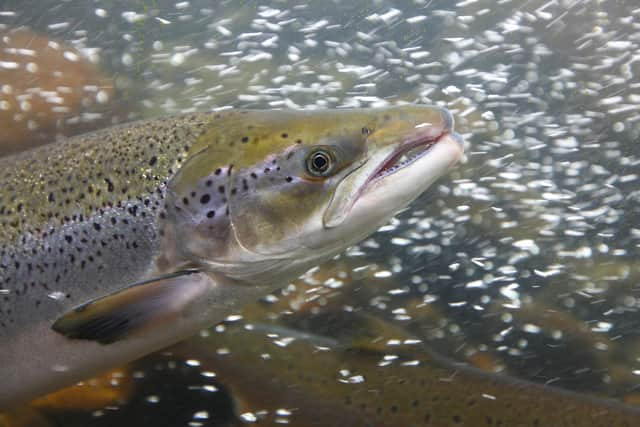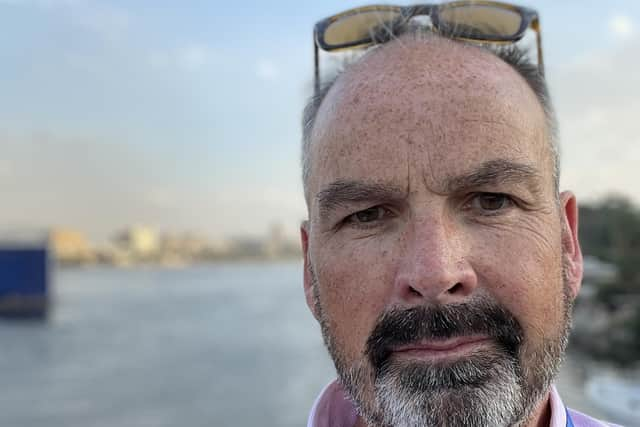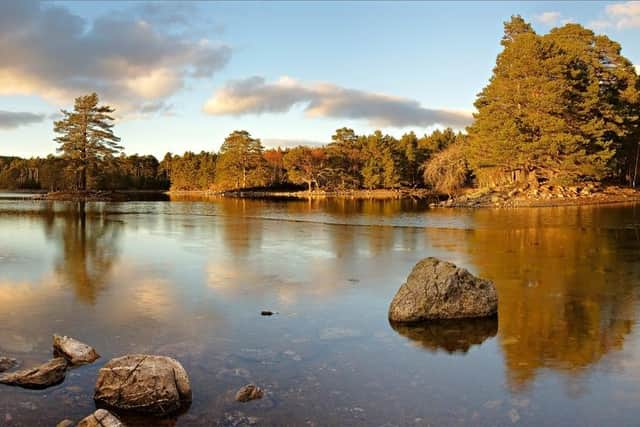International experts flood to water summit in Scottish city to help safeguard future supplies across the globe
Water is literally the liquid of life. Without it nothing much would survive.
But the world’s water has never been more at risk, with climate change, political tensions, expanding development and pollution all putting increasing pressures on supplies and quality.
Advertisement
Hide AdAdvertisement
Hide AdSo the importance of safeguarding this most precious resource cannot be underestimated, according to Scottish academics.
And few know more about the subject than the team based at the University of Dundee’s UNESCO Centre for Water Law, Policy and Science – the only facility of its kind in the UK.
“We are on the cusp of environmental catastrophe,” according to Professor John Rowan, director of the centre.
“To remain ignorant of water is no longer an option.”


Today the centre is hosting a special international summit at the city’s Discovery Point, with academics and students representing 30 countries across the globe taking part.
The symposium, entitled Shared Water Futures, will study all aspects of governance surrounding water, including efforts to conform with climate change laws, the emergence of new contaminants, the exploration of nature-based solutions to address pollution and the impact of glacier recession on the environment.
Prof Rowan said: “While we may take it for granted every time we turn on a tap, the security of the water in our lives has never been more precarious.
“The climate crisis, global conflict and commercial and political pressures are all placing a strain on what is undeniably our most precious natural resource.


“There is also a need to acknowledge that we need to protect our water sources for more than just human needs.
Advertisement
Hide AdAdvertisement
Hide Ad“The natural world – all animals and plant life – also depends on us acting as responsible guardians of our rivers and oceans.”
Luckily, in Scotland – thanks to our notoriously wet weather – we currently have plenty of water.
Most of the time.


But climate change is upsetting the usual balance and it’s not always in the right place at the right time, the professor explains.
“Water knows no borders and how we use it here does impact elsewhere,” he said.
“It is a danger we can no longer overlook.
“Even here in Scotland, with our abundance of rainfall, our relationship with water is at risk of significant change.
“The country is definitely water-rich, but not always and not everywhere.
“There is considerable evidence that ongoing climate change is driving greater variability and that these are the drivers of more flooding and periodic water shortages.
“We initially intended for this event to be a discussion among local experts, but as we explored our programme it became very evident that we needed to look at these issues in a global context.”
Advertisement
Hide AdAdvertisement
Hide AdAs the planet continues to heat up, weather patterns will become increasingly volatile – with severe conditions such as heavy rainfall and extreme droughts becoming more common and causing swings between flooding and shortages.
Effects are already being felt worldwide, even here.
But it’s set to get worse, according to the geography professor.
“The climate emergency is everywhere and all at once,” he said.
“Many aspects of Scottish life and livelihoods will become increasingly challenged as the climate continues to change, especially if we cannot stay within the Paris Agreement commitments of living within 1.5C.
“All things will be at risk of change – the water status of peatlands, the likelihood of wildfires, chronic drinking water shortages in selected rural communities and low-flow conditions in rivers, springs and lochs supplying the whisky industry.
“We urgently need new imaginative approaches going beyond ‘do-no-further-harm’ thinking towards nature, and climate-positive goals that are regenerative, inclusive and situate people as thriving reciprocal partners in nature.”
Researchers at the centre work on a wide range of Scottish, UK and international projects, from use of natural flood defences and designing climate-resilient buildings to studies of new contaminants affecting water courses and developing solutions for managing water resources.
Core funding comes from the Scottish Government, under its Hydro Nation programme, backed by grant income from diverse sources – including national and international donor agencies, governments, UN bodies, research councils and non-governmental organisations.
Comments
Want to join the conversation? Please or to comment on this article.